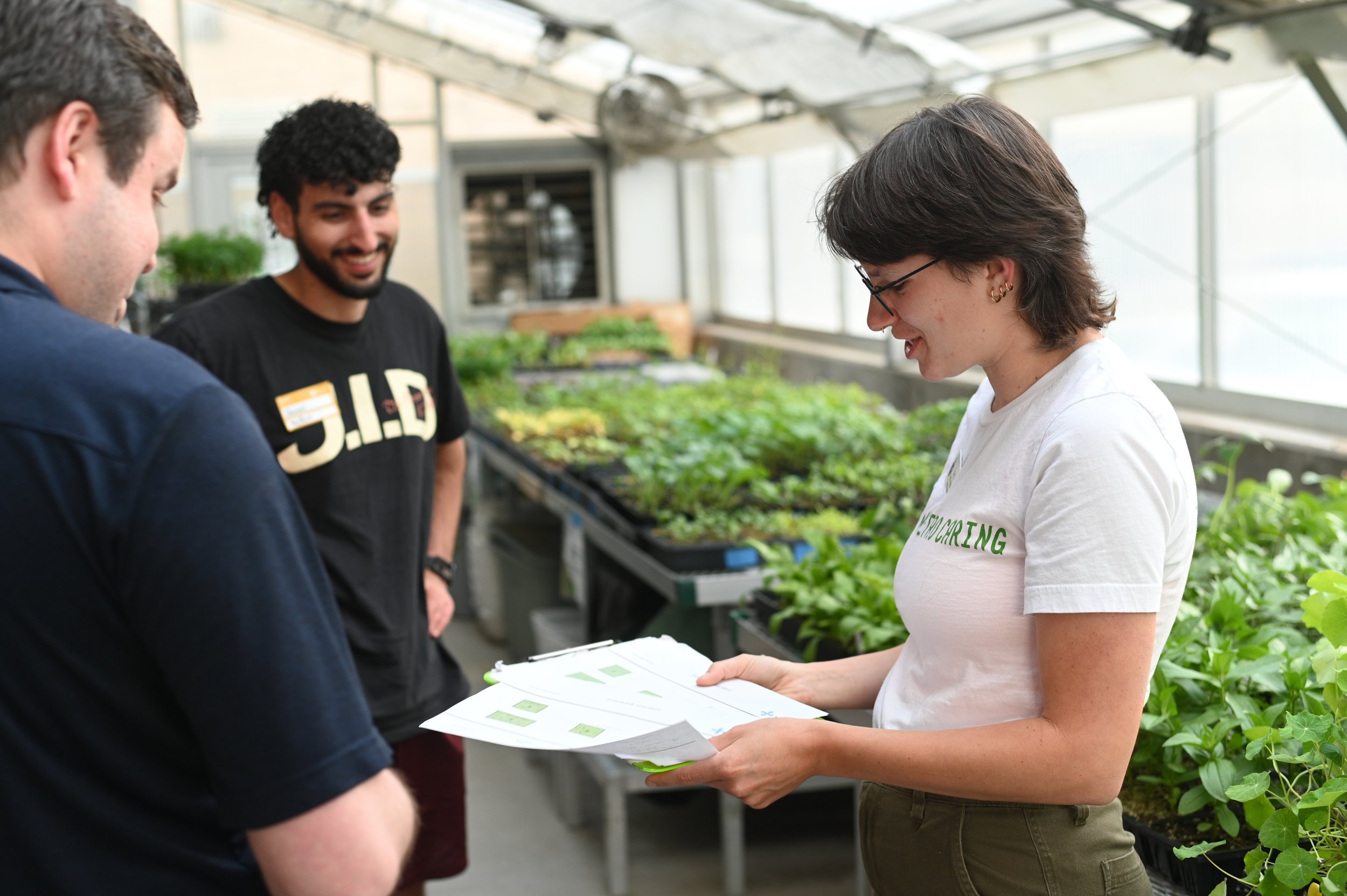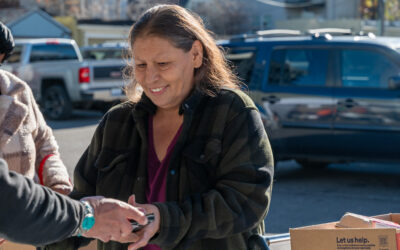By Brandon McKinley
Our mission at Metro Caring is two-fold: work with our community to meet people’s immediate needs for nutritious, culturally rooted food and build a movement to end hunger at its root. To foster creative and innovative solutions to these systemic root causes and support our staff’s well-being, we are launching a shorter workweek pilot.
For six months, from August 2023 to January 2024, Metro Caring’s full-time staff will trial a 4-day, 32-hour workweek to evaluate if it improves well-being, productivity, and creativity.
“I believe a shorter work week will create a healthier work-life balance so that folks who are dedicated and passionate about their work can thrive in the nonprofit sector long term.” — Cory Scrivner, Food Access Manager
Beginning August 1, Metro Caring will be closed on Fridays. To maintain our number of available shopping appointments in our Fresh Foods Market, we will open earlier in the morning at 9 a.m. Monday through Thursday and add evening hours on Monday from 6 – 7:30 p.m. Come September, we plan to add evening hours on Wednesday, which will increase the total number of appointments in the Fresh Foods Market. Existing Tuesday evening hours will remain the same.
Metro Caring has served our community since 1974, meeting people’s immediate everyday needs for fresh, nutritious foods. As we approach our 50th anniversary, we are keenly aware that hunger remains a prominent challenge in our state, one that has grown in recent years due to COVID-19, the rising cost of living, and inflated food prices.
“Ending hunger requires creative, innovative solutions,” CEO-Visionary Teva Sienicki says. “While we continue to do our part to expand access to healthy food, we also face the reality that after 50 years, the lack of government investment, skyrocketing cost of housing, and unlivable wages make it impossible for us to meet everyone’s needs every day. We have to focus on new ideas and innovative solutions to challenge the status quo, reinvent our local food system, and undo centuries of racism. These challenges created generations of families worrying where their next meal will come from. We must think outside the box to change the trajectory of the next 50 years.”
Over half of nonprofit leaders felt “used up” at the end of the workday, according to a 2021 study from DDI. Turnover rates are higher in the nonprofit section (19% compared to the industry average of 12%), and studies estimate losing an employee can cost the organization 1.5 to 2 times the employee’s salary.
In contrast, research from 4 Day Week Global has shown 3 out of 4 employees are happier and less stressed with 4-day weeks, and 63% of businesses found it easier to attract and retain talent.
“We need skilled employees, creative thinkers, and people with lived experience to lead our movement,” CEO-Integrator Erik Hicks says. “While we can’t always compete with corporate pay scales, we can offer our employees a healthier way of balancing their personal and professional lives with competitive benefits, thriving wages, and a shorter work week. By piloting a 4-day work week, we hope to push the boundaries of our sector, care for and retain our staff, and continue to attract talented and experienced leaders.”
As with all our work at Metro Caring, we make decisions with our community. After surveying shoppers in our Fresh Foods Market, we found that opening more evening shifts would better meet our community’s needs than being open during the day on Fridays.
“We need skilled employees, creative thinkers, and people with lived experience to lead our movement… we hope to push the boundaries of our sector, care for and retain our staff, and continue to attract talented and experienced leaders.” — Erik Hicks, CEO-Integrator
Additionally, we anticipate greater staffing of volunteers for evening shifts because our current Tuesday night shift is often so popular that we don’t have enough work for everyone who shows up.
While we have a few regular Friday volunteers for whom we are incredibly grateful, general low turnout often results in staff members having to jump in to cover roles, a practice that is unsustainable, unproductive, and a direct cause of exhaustion and burnout. By shifting our Fresh Foods Market hours to more evening shifts, we believe we will improve the shopping and volunteer experience while reducing stress on staff.
Our 4-day workweek pilot is being designed by staff and in partnership with 4 Day Week Global. All full-time employees will work Monday through Thursday, with the exception of special events, which employees will use flex time to compensate for, as usual. Front-line staff will stagger hours on days with evening shifts, just as they do now for Tuesday evenings, so that no staff should work over an 8-hour day.
“In the past 4 years, my position has been filled by four different people,” Food Access Manager Cory Scrivner says. “After chatting with my predecessors, it’s clear to me that they loved the work, yet found it unsustainable. When I took this role, one of my main objectives was to make the Food Access program more sustainable long term. I believe a shorter work week will create a healthier work-life balance so that folks who are dedicated and passionate about their work can thrive in the nonprofit sector long term.”
During the pilot, Metro Caring will evaluate employee well-being, productivity, and work-life balance through surveys presented before, during, and near the end of the 6-month period. Metro Caring is also participating in a global survey with 4 Day Week Global to share data on our pilot with other organizations as part of our commitment to be leaders in the anti-hunger movement and nonprofit sector.
“We face the reality that after 50 years, the lack of government investment, skyrocketing cost of housing, and unlivable wages make it impossible for us to meet everyone’s needs every day… We must think outside the box to change the trajectory of the next 50 years.” — Teva Sienicki, CEO-Visionary




